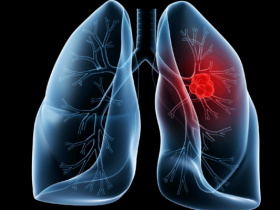The research stated that although sublobar resection has become widely used for lung cancer treatment, very limited data comparing outcomes following complex segmentectomy or wedge resection is available. Questions remain regarding mortality, morbidity, surgical margin, lymph node dissection, and long-term survival outcomes. The research compared operative and postoperative outcomes of complex segmentectomy and wedge resection. A total of 216 patients with clinical stage I lung cancer who underwent complex segmentectomy (n = 110) or wedge resection (n = 106) between April 2007 and March 2017 were retrospectively reviewed, and 61 propensity score-matched pairs were analyzed. Operative and postoperative results were compared. Factors affecting survival were assessed using the Kaplan-Meier method.
Although the complex segmentectomy group tended to have higher overall complications (26.2% vs. 16.4%; P = .27) and prolonged air leakage (11.5% vs. 6.6%; P = .53) rates than the wedge resection group, major complications (≥grade IIIa) (0% vs. 3.3%; P = .50) and 30-day mortality (0% vs. 0%; P = 1.00) rates were comparable between both groups. Complex segmentectomy provided better median surgical margin distance (15.0 vs. 10.0 mm; P = .052) and number of dissected lymph nodes (6.0 vs. 0.0 nodes; P = .0002) than wedge resection. The complex segmentectomy groups tended to have better prognosis that the wedge resection group (5-year overall survival rates, 94.7% vs. 79.4% and 5-year recurrence-free survival rates, 94.0% vs. 76.5%, respectively). Complex segmentectomy helped to provide better survival and oncological outcomes with acceptable perioperative safety compared with the wedge resection.








Leave a Reply